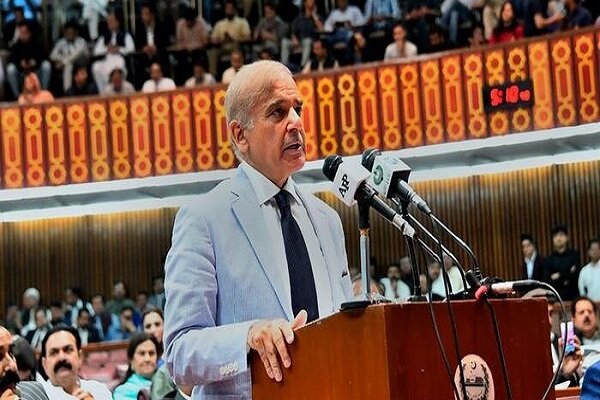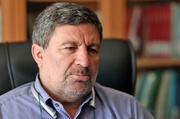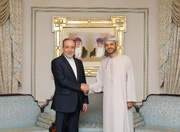After nearly a four-year tenure, Imran Khan’s job as prime minister came to an end. The Pakistani parliament ousted Khan in a rare no-confidence vote earlier this month, paving the way for a new cast of political leaders.
Pakistan’s lawmakers elected on April 11 Shehbaz Sharif as the country's new prime minister after ousting Imran Khan. The cricket star-turned-politician vehemently opposed the vote and even sought to dissolve the parliament but his efforts got nowhere. Imran Khan and most of his party members resigned their national assembly seats before the vote.
The resignation of Imran Khan's allies facilitated the rise of Sharif as he was the only candidate for the top executive job after Khan loyalist Shah Mahmood Qureshi, the former foreign minister, withdrew his candidacy.
Sharif is the leader of the centrist Pakistan Muslim League-N (PML-N). He is a businessman and has served as former chief minister of Pakistan's most populous Punjab province.
Imran Khan has blamed the United States for his ouster, saying that Washington led a plot to unseat him after he visited Moscow against US advice.
Pakistan’s National Security Council, a body of top civil and military leaders, has rejected Khan’s accusations that Washington had conspired to overthrow his government through a parliamentary vote of confidence.
Asad Majeed, the former Pakistani ambassador to the US who had written a cable to Islamabad about Washington’s take on Khan’s Moscow visit, briefed the civil and military leaders on a forum called National Security Committee (NSC), according to Al Jazeera.
“The NSC after reviewing the contents of the communication, the assessment received, and the conclusion presented by the security agencies, concludes that there has been no conspiracy,” a statement from the office of new Prime Minister Shehbaz Sharif, who chaired the NSC meeting, said on Friday.
Aside from how Imran Khan was ousted, Pakistan is facing a litany of economic challenges that could tempt other countries to use to affect the nuclear-armed South Asian country’s foreign policy.
Pakistan is over $100 billion (€92 billion) in debt, needing over $14 billion dollars a year to meet debt servicing requirements on repaying loans that it owes to international monetary institutions.
Pakistan relies on foreign aid to achieve financial balancing. And Saudi Arabia is the major source of financial aid to Pakistan. But under Khan, Saudi-Pakistan ties were strained over the former prime minister’s foreign policy positions which fell short of Saudi expectations. At times, Saudi Arabia even withdrew its hard currency deposits from Pakistan on short notice, causing uproar in Riyadh-Islamabad relations.
Under Khan, Pakistan developed good relations with other Islamic powers such as Turkey and Iran, a move that created a silent crisis with Riyadh. Shehbaz Sharif strongly criticized the Khan administration’s foreign policy toward Saudi Arabia.
In August 2020, when then-Foreign Minister Shah Mehmood Qureshi made remarks against Saudi Arabia, Sharif was keen to castigate him.
“FM’s statement about brotherly Saudi Arabia is highly unfortunate & irresponsible. It flies in the face of the history of our special & trusted relationship with the Kingdom. The cavalier attitude by this govt is undermining Pakistan's core relations with friendly countries!” Sharif tweeted at the time.
After Sharif assumed premiership a few weeks ago, Saudi Arabia also was keen to foster good relations with the new leader. The Saudis seem to hope that they would be able to distance Pakistan from Iran and bring it closer to Saudi Arabia.
Sharif will pay a visit to Saudi Arabia by the end of this month. This would be his first foreign trip as prime minister.
Saudi Crown Prince Mohammad bin Salman called the new prime minister four days after he assumed office to congratulate him on his new job. Saudi media said the call confirmed the strength of relations between the two countries and stressed the need to strengthen them in all fields, noting that Sharif expressed his gratitude for the support provided by the Kingdom to Pakistan.
But Sharif, while appreciating all the assistance given by Saudi Arabia and other countries, is unlikely to radically change the balanced foreign policy of Pakistan. Because he knows that maintaining good relations with all important players serves the national interests of Pakistan. Some pundits have posited that Sharif needs to be careful in reviewing the demands that some regional powers may present in exchange for providing assistance.
First published in Tehran Times

























Your Comment